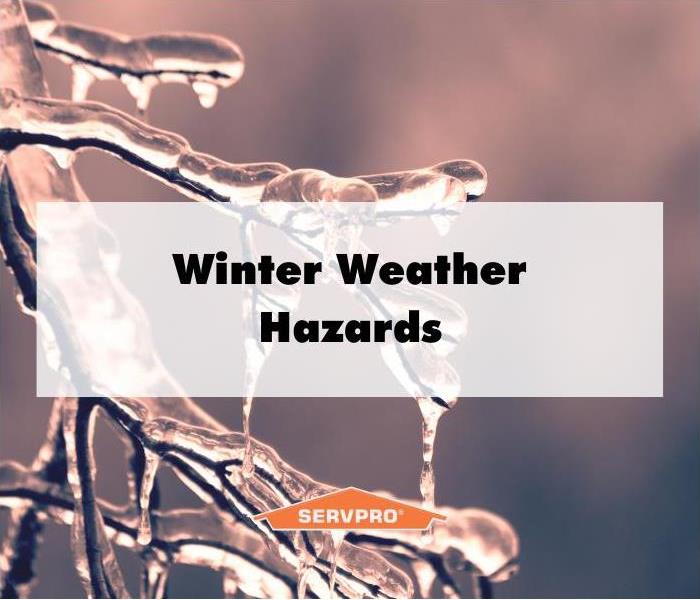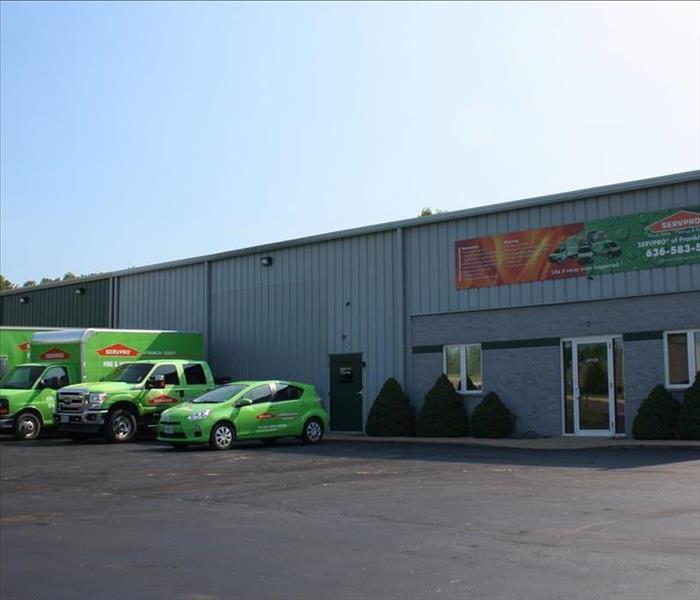Winter Weather Hazards
2/1/2021 (Permalink)
 If your home or business suffers from damage due to ice dams, frozen pipes, or a heating system fire, give SERVPRO of Franklin County a call.
If your home or business suffers from damage due to ice dams, frozen pipes, or a heating system fire, give SERVPRO of Franklin County a call.
Winter weather leads to issues for thousands of people and their homes each year. Since cold weather can cause issues that don’t occur the rest of the year, it’s important to be vigilant about any problem that could arise.
Here are some potential problems that should be on your radar this winter.
- Heating System Fire
While most winter fires take place in the kitchen, heating systems can also be a culprit. Thousands of residential fires occur each year due to failure of home heating systems. Fireplaces, chimneys and chimney connectors are responsible for half of the fires. That’s why it’s important to have your heating system checked regularly, especially if you have a gas or electric furnace or heat pump.
Space heaters also cause many fires in the winter, and in total cause 25,000 per year. Space heaters should never be left on unattended, especially after going to sleep.
Being aware of the potential hazards of your heating system can keep you fire-free this winter.
- Frozen Pipes
Pipes freezing and bursting can be a nightmare for your home.
Frozen pipes cause an estimated $400-$500 million in damage annually. To avoid adding to that number, it’s crucial to take preventive measures. Drain water from pipes that are likely to freeze and disconnect any outside hoses.
If you are still worried that your pipes might freeze, you can also place a 60-watt bulb in areas you’re concerned with. Just make sure none of the materials near the bulb are combustible.
To keep pipes from freezing, your thermostat should be kept around the same temperature at all times, and your house temperature should never fall below 55 degrees.
- Ice Dams
While ice dams can be pretty to look at, they can be a nuisance to deal with. Since ice dams are caused by a lack of uniform roof surface temperatures, this problem must be addressed if you are experiencing ice dams. Making your ceiling and attic air-tight, adding insulation and installing heating cables to the roof are all steps that can create uniform temperatures.
If you are already dealing with ice dams, you can take a long-handled aluminum roof rake to scrape off snow from the roof. And if you’re experiencing leaking, you can set up a box fan in the attic and aim it at the bottom of the roof where water is leaking in. This will freeze the water and stop the leak.
- Carbon Monoxide
Cold temperatures can often lead to problems with carbon monoxide in the home. Sadly, 430 people die annually from carbon monoxide poisoning, while approximately 50,000 are hospitalized.
Carbon monoxide poisoning occurs due to faulty heating systems. Whether it’s unvented space heaters, malfunctioning furnaces, clogged chimneys or other heating system issues, it’s important to make sure your system is functioning properly.
That’s why you should have your furnace and fireplace inspected before each winter. In addition, carbon monoxide detectors should be installed in your home (if you don’t already have them), and the batteries should be checked and replaced regularly.
Also, make sure that if you’re going to use space heaters they are properly ventilated.


 24/7 Emergency Service
24/7 Emergency Service
